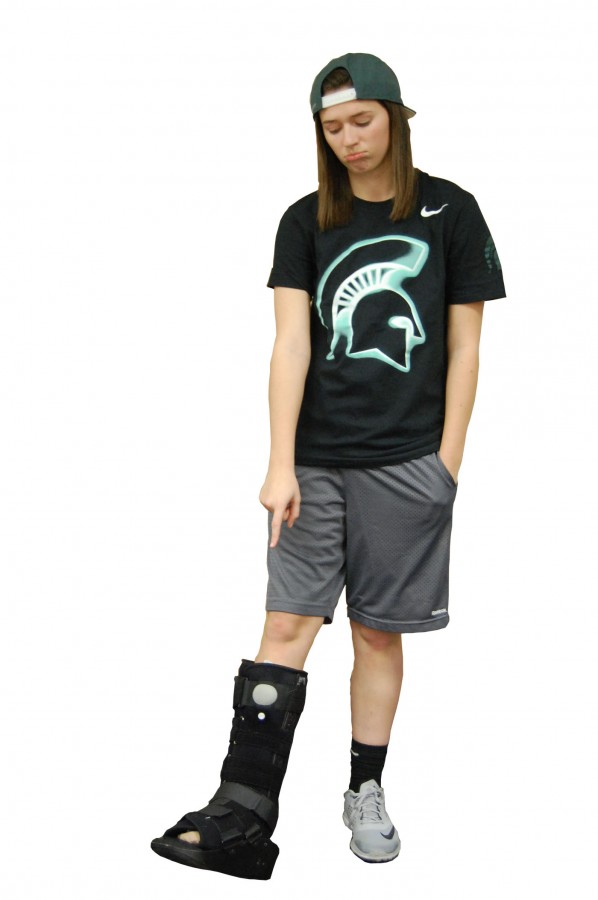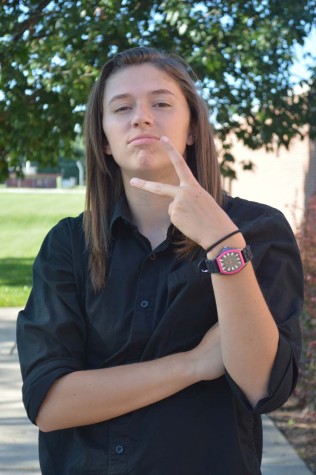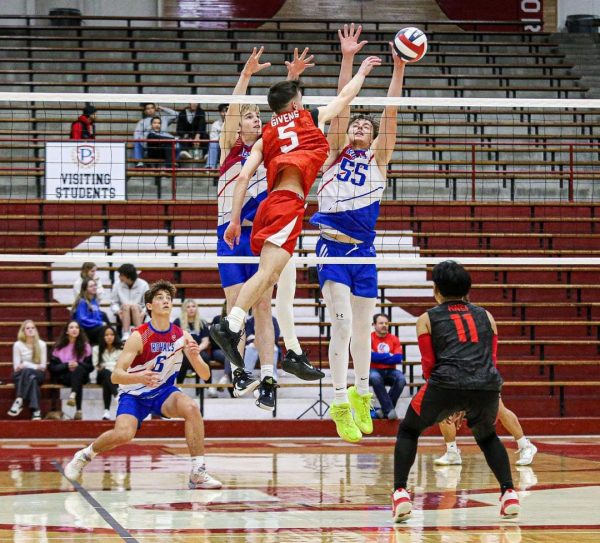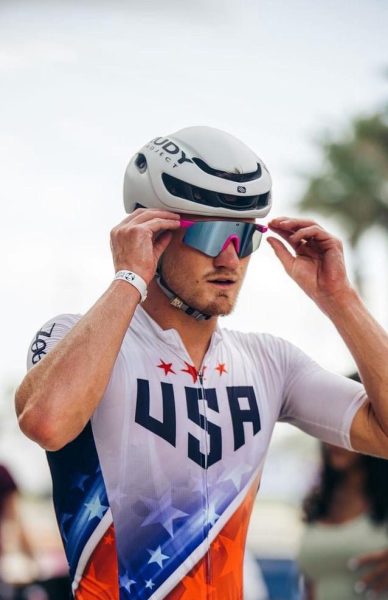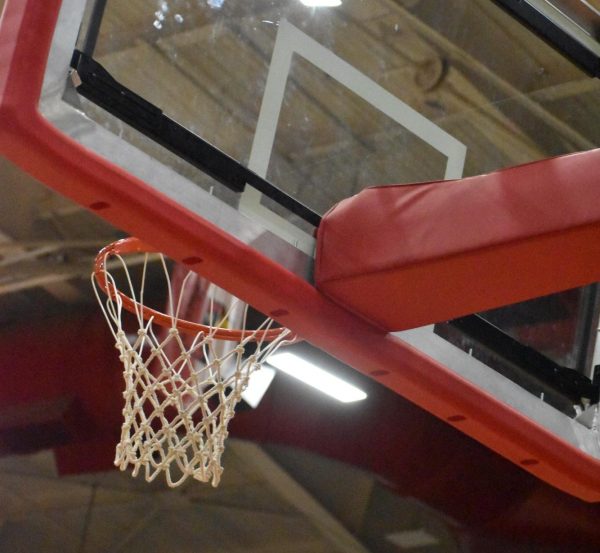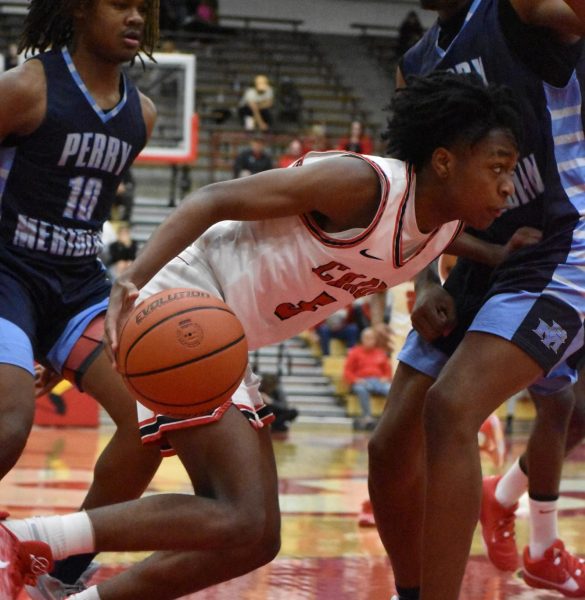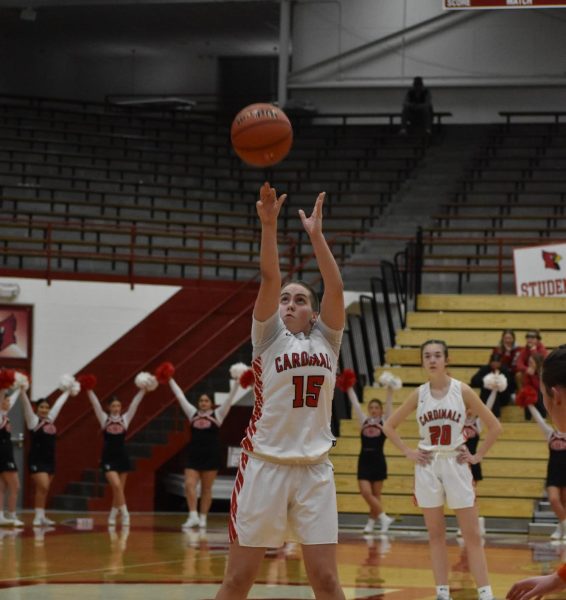Straight Talk
Physical injuries take mental toll
January 22, 2016
It was arguably the biggest game of our season, and I was determined to do everything I could to help my team win. The girls soccer team had never beaten Perry Meridian since I was in high school. Going into the game, I had been dealing with an ankle injury. No one diagnosed anything specific, so I went on playing. During warm ups, something didn’t feel right, but I ignored it and kept going.
Right before halftime, I stopped a shot and went to punt the ball. I dropped it, kicked it and all I felt was a big pop. I knew something very bad had happened to my ankle. I landed on it and immediately fell to my knee. I took a minute, gathered myself and continued playing. That was probably the worst choice I could have made.
Now, instead of going to a small college and being an athlete, I’m going to IUPUI and coaching on the side. My injury completely changed the plans I had for my future.
People who aren’t athletes, or athletes who have never been seriously injured don’t really understand the toll it takes on someone’s mindset. An injury may start as something physical, but over time it causes psychological problems, like depression.
When athletes get hurt, everything they’ve ever worked towards, like a scholarship, seems to just vanish. After my injury, it was hard to comprehend that it was over. I worked hard to earn a starting sport and captain’s role. I was an athlete until the moment I stepped off the field against Perry. After that, I wasn’t quite sure who I was. When Eddie George, a former NFL player, decided to hang up his cleats and lost his ability to play sports.
“Who am I? I’m no longer an athlete,” George told ESPN. “There is a part of you that dies, and part of death for the person who survives is grieving.”
For some athletes, grieving turns into depression. I had a routine, much like other athletes. I went to school, practice and then home. When that changed, I just sat on the sidelines and watched my team go on. Like many other injured athletes, I didn’t know what to do with myself.
Losing a sport isn’t just losing yourself for a successful athlete. It’s losing your future. My plan for as long as I can remember was to be a college athlete. I was going to work hard an earn a soccer scholarship. I didn’t plan for anything else, and when I got injured, that came back to bite me. I was so lost and I wasn’t sure how to find my way back.
Sports are often used as a sanctuary for athletes to take out their frustration. Without that coping mechanism, frustration builds up and starts to eat at them. The NCAA warns of irritation after an athletes get hurt. That irritation comes from the built up frustration. I remember being so frustrated when I sat during games that I would either cry or throw my crutches.
Injuries are unexpected and athletes don’t tend to plan for them. We may see players go down with ACL tears and broken legs, but we don’t ever think that could happen to us. But, then it does and we don’t know what to do.
I sure didn’t. Despite the fact I did everything my trainers and doctors told me to do, I still ended up having to have surgery. It’s important for athletes to understand that getting hurt isn’t their fault. We put our bodies through hell every game and every practice, and sometimes they just stop being able to withstand the pressure. That isn’t our fault.
Not many people can understand what an injured athlete is going through. They feel depressed and alone. Being positive isn’t always the best thing to do. Personally, positivity just frustrated me and pushed me into a deeper depression. Empathizing with what a player is going through and encouraging them to talk about how they feel is the best thing to do. Their injury becomes mental, just as much as it is physical.


